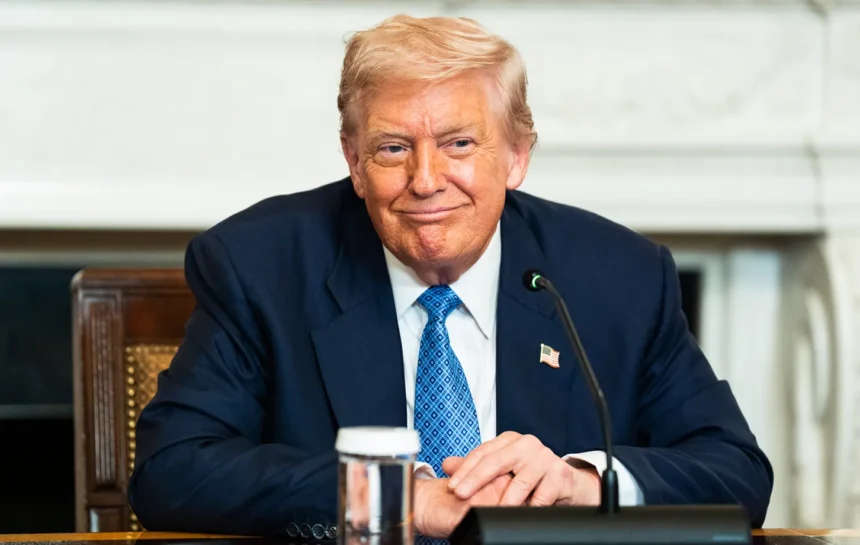One requirement for US President Donald Trump’s acceptance of an invitation to the Asean Summit in Kuala Lumpur later this month is that he be permitted to chair the signing of a peace agreement between Thailand and Cambodia, the neighbours who recently engaged in one of the bloodiest border conflicts in the region.
It was anticipated that Southeast Asian countries would use the October 26–28 conference as a forum to pressure Washington to lower new tariffs that have shaken their economies. The emphasis has switched from trade to Trump’s pursuit of diplomatic recognition as a result of his desire for a peace ceremony.
Following the first part of a plan he has developed for Gaza being approved by Israel and Hamas, Trump comes on a high note. The date aligns with the week of the Nobel Prize Committee’s announcements, which includes the much-anticipated Peace Prize that Trump has long pursued.
After five days of combat along the Cambodian Thai border, at least forty-three persons were murdered in early August. Anwar Ibrahim, the prime minister of Malaysia, brokered a truce that put a stop to the fighting on August 7.
According to four government and diplomatic sources in Malaysia, Trump wanted the ceremony to highlight his role in starting the peace process, This Week in Asia said. According to Politico, the White House demanded that Chinese officials be barred from the ceremony and made it a requirement for Trump’s presence.
As the head of ASEAN this year, Malaysia has not received any official demands from Washington.
“(The peace deal ceremony is) potentially happening, yes, but it has yet to be finalised,” It also depends on Thailand’s consent, a source told This Week in Asia.
Despite the ceasefire, border tensions are still high. With soldiers remaining on guard, both sides have accused one another of infractions. Thai and Cambodian nationalists have put pressure on their governments to avoid giving up land.
After parliament threw out Paetongtarn Shinawatra for an ethical violation related to a leaked call with former Cambodian leader Hun Sen, Anutin Charnvirakul became the prime minister of Thailand last month.
In order to facilitate fresh elections and a constitutional referendum, Anutin has promised to dissolve the parliament within four months.
With confirmed attendance from South Africa’s President Cyril Ramaphosa, Brazil’s President Luiz Inacio Lula da Silva, India’s Prime Minister Narendra Modi, and China’s Premier Li Qiang, the 2025 Asean Summit is anticipated to get international attention.
After the United States imposed 10% to 40% tariffs on Asean exports since August, all ten Asean leaders are expected to pursue bilateral meetings with Trump to discuss trade relief. The tariffs may hinder Southeast Asia’s economy and force nations to look for other export markets, according to economists.
Beijing is no longer Kuala Lumpur’s top export destination; in 2022, bilateral trade reached $78.3 billion. However, with $597 billion in trade in the first seven months of 2025, China continues to be the most important partner in ASEAN for the 16th consecutive year.
The US was favoured by 52.3% of Southeast Asian respondents as a long-term strategic partner, while China was favoured by 47.7%, according to a recent regional study.
Before Trump’s new tariffs took effect, the numbers looked different. Now, ASEAN members face fresh trade pressures: Laos and Myanmar at 40%, Brunei at 23%, most others at 19%, and Singapore at 10%.
As ASEAN leaders prepare to tackle trade and regional security, Trump appears focused elsewhere — chasing a symbolic peace deal and the Nobel Peace Prize he’s long coveted.
Source: Global South World






